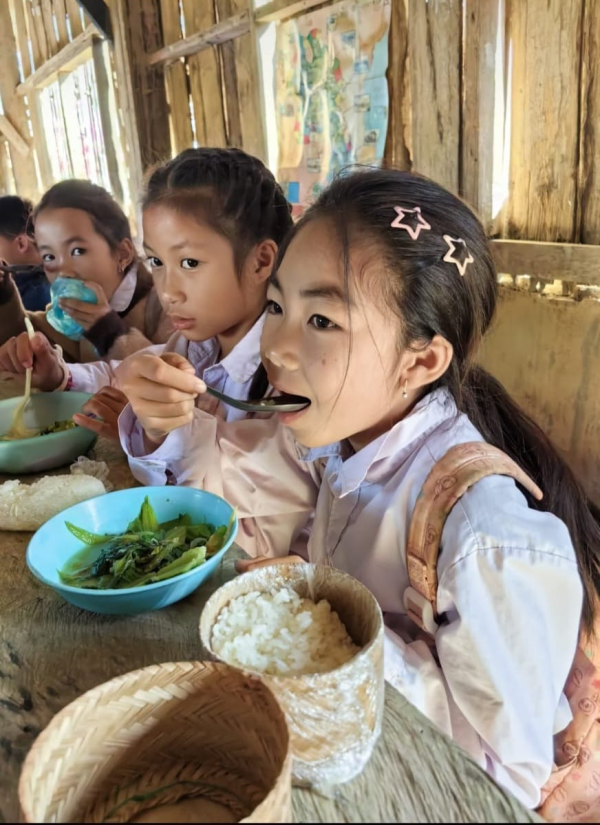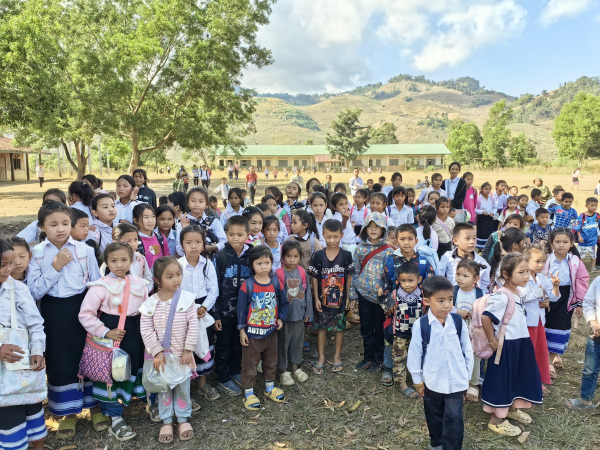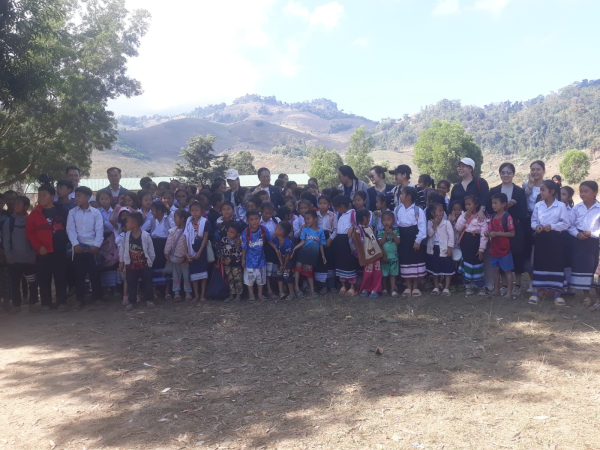KPL
Naxiengdee Village Primary School, located in a rural, remote, and mountainous area in Houn District, Oudomxay Province, is one of the beneficiaries of a school lunch program supported by the World Food Programme (WFP).

(KPL) Naxiengdee Village Primary School, located in a rural, remote, and mountainous area in Houn District, Oudomxay Province, is one of the beneficiaries of a school lunch program supported by the World Food Programme (WFP).
The initiative has significantly impacted students by enabling group activities, additional learning opportunities during lunch breaks, and reducing the need to return home for meals. It has also alleviated the financial burden on families and provided numerous other benefits, said Mr. Haem Souvanaly, Director of Naxiengdee Primary School, on December 10.
Mr. Haem highlighted the program's success, noting that the school serves both kindergarten and primary students, with seven teachers and over 300 students. Naxiengdee Village has 370 households and a population of 17,711.
“In 2021, the WFP transferred the school lunch program's management to the government to ensure sustainability. However, the current government-provided daily lunch allowance of 1,000 kip per student is insufficient due to inflation,” he said. He also pointed out that 30% of stakeholders’ output contributes to school meals.

The program, implemented in three phases, integrates community-driven agricultural activities of supported 30 households in planting and farming, assisted two households in developing fish farms and extended support to 15 households by establishing four chicken farms and two fish ponds, while encouraging vegetable cultivation in home gardens.
Key resources provided to households include 2,000 fish fingerlings and six bags of fish feed per household, 50 laying hens, 12 bags of chicken feed, roofing materials, 200-liter water containers, water pipes, sprinklers, and vegetable seeds.
Community participation plays a pivotal role, with families contributing firewood, food, and utensils for meal preparation. Parents rotate cooking duties, while students bring additional ingredients from home.

The program has yielded remarkable benefits, such as increased time for group activities, enhanced collaborative study during lunch breaks, reduced need for students to leave school for meals, and improved school attendance. It has also helped reduce dropout rates by providing a stable and supportive environment.
To sustain and expand the program’s success, collaboration among stakeholders—government agencies, communities, and supporting organizations—is essential. The initiative highlights the power of collective efforts in enhancing children’s education and overall well-being.
The WFP handed over the implementation of the school meal program to the Lao PDR government in 2019 and 2021, covering 515 schools. The government allocated a budget of 1,000 kip per student per meal, with communities contributing raw materials and labor. Post-transfer, the WFP continued offering technical support, such as promoting agriculture, establishing household gardens (142 households), and forming farmer groups for sustainable agricultural practices supporting households and school meals. Over 1,000 families participated in these activities, including cultivating vegetables, fish farming, and raising egg-laying chickens.

The program also emphasized local education and agricultural development, fostering knowledge exchange through community nutrition learning centers, promoting nutritional awareness, and supporting behavior changes among target groups. Village-level nutrition development plans were created to enhance agricultural techniques, provide funding for household gardening, and conduct training on preparing nutritious meals, food processing, and preservation.
Furthermore, the program strengthened resilience against natural disasters by implementing disaster management plans, building the capacity of provincial and district staff, and improving community infrastructure to mitigate risks.
In Oudomxay Province, the WFP’s activities span seven districts—Xay, Houn, Namor, Beng, Pakbeng, La, and Nga—focusing on school meals, nutrition, community asset building for disaster resilience, and disaster management.
KPL